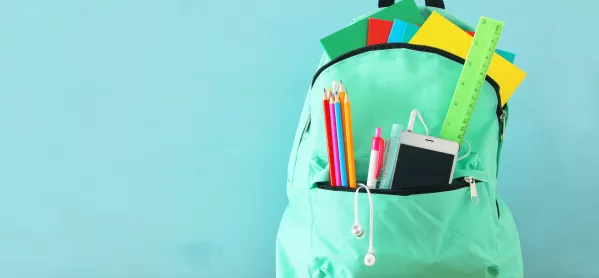In the past few weeks in Scottish schools you have probably witnessed pupils arriving for the first day of term with shiny new backpacks brimming with notepads, pencils and other school essentials. As well as some non-essentials, I’m sure.
For many of those pupils, it will be inconceivable that there are children their age who attend school but are too hungry to learn. Or who miss school because they have to beg, work or scavenge in rubbish to get food to survive.
In fact, sadly, around the world 64 million children will miss school today because of poverty.
Empowering teachers: Your CPD can transform education in Zambia
One teacher’s view: ‘Your pupils are never too young to make a difference’
Climate change: Pupil activists told they can strike only once a year
Quick read: How schools can help tackle the scourge of homelessness?
Brexit: ‘Rethinking citizenship is vital in the age of Brexit’
Mary’s Meals is a charity, founded in Argyll in Scotland, that feeds more than 1.5 million children in 18 countries across the world every school day. The food attracts hungry children into the classroom, where they receive an education that can lead to a better future.
We also run The Backpack Project, a campaign that encourages school pupils in the UK to learn about life in other parts of the world in a really hands-on way.
Teaching children about global poverty
As part of the project, teachers are encouraged to speak to their classes about Malawi, one of the poorest countries in the world and the first in which Mary’s Meals began feeding hungry children. Pupils can then work together to collect second-hand bags and fill them with donations such as notepads, pencils and clothes. We collect the bags from schools and send them 7,000 miles to classrooms in Malawi.
It’s far from a straightforward geography lesson, and the knowledge that impoverished children will benefit from the bags is really powerful.
One school that took The Backpack Project to heart was Auchinleck Academy in East Ayrshire, collecting more than 100 school bags in recent years. Technical education teacher Gerry Deeney told me about the connection pupils have with children receiving backpacks. He explained that packing basic items, such as pencils, really brings home to his pupils how little their peers in other countries actually have.
Of course, The Backpack Project also presents a wonderful opportunity to teach pupils about recycling and how to avoid waste. I know that children here in the UK are often awestruck to learn that items they’ve outgrown or no longer want can be so useful - and so appreciated - by other children.
Around 400 schools across the UK already take part in The Backpack Project, and we expect to send more than 40,000 bags to Malawi this year. As you plan activities for your pupils across the new school term, I hope you will consider teaching them about Malawi - and how backpacks can change lives.
Mary’s Meals can collect group donations of backpacks from schools, workplaces and groups across the UK. To find out more about The Backpack Project, please visit the charity’s website. Mary’s Meals has also produced a guide for teachers taking part in The Backpack Project.
Julie MacFarlane-Barrow played a vital role in establishing Mary’s Meals. She was involved in some of the first deliveries of aid to Bosnia-Herzegovina by Mary’s Meals in 1993 and has been devoted to the charity ever since. She currently works for Mary’s Meals as a fundraising officer

